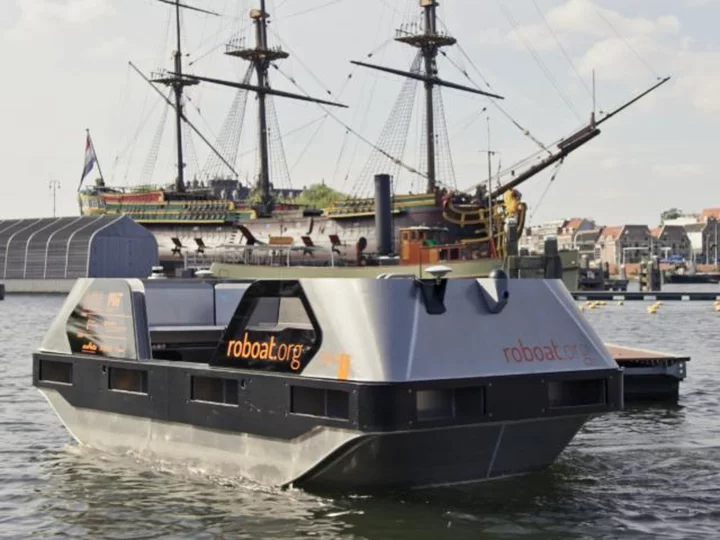Fully self-driving cars have been promised for years, but despite numerous road trials and advances in technology, we're still waiting.
In 2016, Lyft predicted that most of its rides would be self-driving by 2021, while in 2017, General Motors said it would be mass producing fully autonomous vehicles even sooner. But creating a car able to handle every eventuality that can arise on every road is proving harder than anticipated.
On the water, the situation is a little different: with fewer vehicles in canals, rivers, and on the open water than on roads, and without the problem of wayward pedestrians, autonomous boats have fewer obstacles to contend with. Additionally, boats often follow set routes -- for example shipping routes and ferry crossings -- so navigation is easier than with an autonomous car.
There are already a number of self-driving boats operating on our waterways. Powered by advanced artificial intelligence and sensor systems, these boats navigate, avoid obstacles and adapt to changing conditions in real-time.
From cargo transportation to search and rescue missions, and passenger ferries to tugboats, they can be programmed to carry out complex tasks, such as monitoring water quality, collecting oceanographic data, or even assisting in offshore construction projects.
Autonomous and electric
In the canals of the Netherlands, electric and fully autonomous Roboats have been trialed for transportation and waste collection. These self-driving boats developed by MIT and funded by the City of Amsterdam can even be combined to form floating infrastructure like docks and bridges. The company behind them now hopes to build an autonomous ferry that will operate during the Paris Olympic games in 2024.
In the United Arab Emirates, Dubai has trialed an autonomous Abra ferry -- a wooden vessel that can carry eight passengers -- while in Norway, the Yara Birkeland is described by its creators, chemical company Yara International, as the world's first fully electric autonomous cargo ship, and is intended to promote more environmentally friendly freight movement.
Advocates say that with reduced human error, autonomous boats promise to enhance safety and minimize accidents, while optimizing fuel consumption and reducing carbon emissions.
Now that we can be driverless on the water, how long before we're autonomous on land too?
Scroll through the gallery above to discover some of the world's pioneering self-driving boats.

